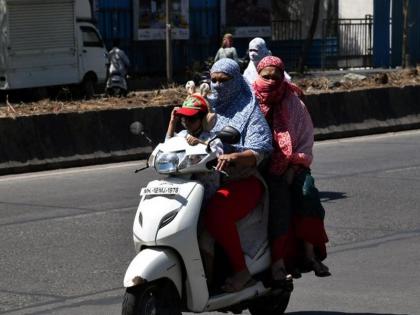Extreme Temperatures, Night-Time Heat Linked to Increased Stroke Risk, Study Finds
By Lokmat English Desk | Published: May 23, 2024 11:06 AM2024-05-23T11:06:19+5:302024-05-23T11:06:24+5:30
New research led by Harvard University has found that extreme temperatures, both hot and cold, are linked to an ...

Extreme Temperatures, Night-Time Heat Linked to Increased Stroke Risk, Study Finds
New research led by Harvard University has found that extreme temperatures, both hot and cold, are linked to an increased risk of death from stroke, with the connection being more pronounced in low-income countries compared to high-income ones. The study analyzed stroke-related deaths reported between 1979 and 2019 across 522 cities in 25 countries.
The study examined approximately 3.4 million deaths from ischaemic stroke and 2.4 million deaths from haemorrhagic stroke, utilizing data from the Multi-Country Multi-City Network, a global environmental health consortium. Ischaemic strokes occur when clotting obstructs blood flow to the brain, whereas haemorrhagic strokes occur when a blood vessel in the brain starts to bleed.
Researchers discovered that for every 1,000 deaths from ischaemic or haemorrhagic strokes, approximately 11 could be attributed to extreme cold or hot days. The coldest 2.5% of days accounted for nine of these excess deaths, while the hottest 2.5% contributed to the remaining two. These findings are published in the journal Stroke. The researchers noted that the study's geographic scope was limited, with rural areas and countries in South Asia, Africa, and the Middle East being under-represented.
In another study published in the European Heart Journal, researchers found that night-time heat significantly increases the risk of stroke. This study, which included contributions from Augsburg University Hospital in Germany, analyzed data on approximately 11,000 strokes over a 15-year period in the region. Their findings revealed that extreme night-time heat raises the risk of stroke by seven percent.
Open in app